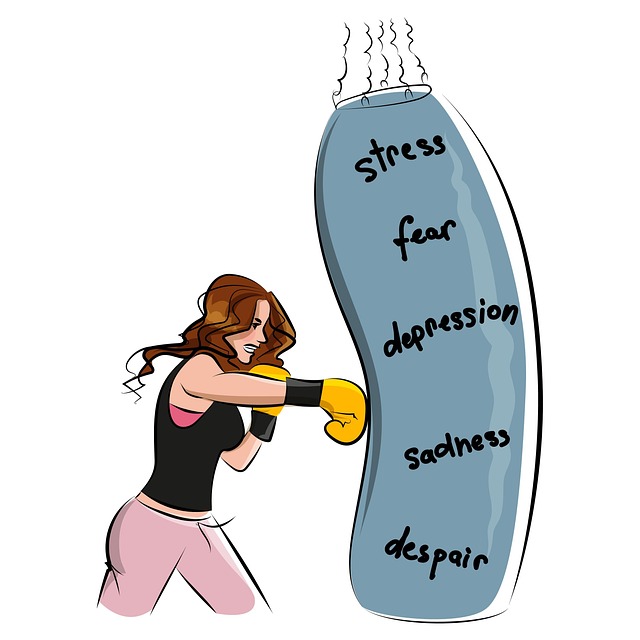Identifying and addressing root causes of substance abuse in children through mental health evaluations, tailored therapy (including cognitive-behavioral therapy), and culturally sensitive approaches is crucial. Early intervention strategies, such as community outreach programs and open communication at home, reduce risk factors by promoting mental wellness and healthier coping mechanisms. Schools play a vital role by integrating mental health support into their programs, enabling staff to recognize and intervene in abuse or mental health issues early on. Community-based interventions, focusing on vulnerable individuals and families, prevent addiction through tailored therapy and evaluations, fostering positive thinking patterns and long-term mental wellness.
Substance abuse among children is a growing concern, with complex underlying factors. This article delves into comprehensive strategies to mitigate these risks, focusing on understanding the root causes, from social influences to mental health disparities. Key components include the pivotal role of therapy and mental health evaluations in early intervention. Additionally, it explores practical steps such as implementing risk reduction tactics at home and school, fostering community support, and long-term prevention initiatives targeted at vulnerable youth.
- Understanding the Root Causes of Substance Abuse in Children
- The Role of Therapy and Mental Health Evaluations
- Implementing Risk Reduction Strategies at Home and School
- Community Support and Long-Term Prevention Initiatives
Understanding the Root Causes of Substance Abuse in Children

Understanding the root causes of substance abuse in children is a crucial step in developing effective risk reduction strategies. Many factors can contribute to a child’s vulnerability, including mental health issues, trauma, or environmental influences. Early intervention and prevention programs play a vital role in addressing these underlying concerns. Therapy for children, tailored to their unique needs, can help identify and manage conditions such as anxiety, depression, or attention-deficit/hyperactivity disorder (ADHD), which are often linked to substance abuse. Mental wellness is enhanced when these mental health evaluations are comprehensive and culture-sensitive, considering the diverse backgrounds of young individuals.
Mental Health Evaluations are essential tools for healthcare providers to assess a child’s psychological well-being and identify potential risks. By incorporating Mental Wellness principles and ensuring Cultural Competency Training for professionals, we can create supportive environments that address individual needs. This proactive approach not only reduces the likelihood of substance abuse but also fosters resilience and promotes healthy development in children, setting them on a path to a brighter future.
The Role of Therapy and Mental Health Evaluations

Early intervention is key when it comes to addressing substance abuse issues, and therapy plays a pivotal role in this process. For children and adolescents struggling with substance misuse, specialized therapy sessions can provide a safe space to explore underlying emotional challenges and develop healthy coping mechanisms. Mental health evaluations are an essential first step, helping professionals identify the root causes of addiction and tailor treatment plans accordingly. These assessments consider various factors, including family history, past traumatic experiences, and mental health diagnoses, which contribute to substance abuse.
Integrating therapy into a comprehensive risk reduction strategy allows individuals to gain insights into their behaviors and triggers. Through evidence-based practices such as cognitive-behavioral therapy (CBT), clients can learn stress reduction methods, manage anxiety relief, and develop healthier alternatives to substance use. Additionally, community outreach programs that incorporate mental health education and support networks can further empower individuals to make positive changes and avoid potential risks associated with substance abuse.
Implementing Risk Reduction Strategies at Home and School

Implementing risk reduction strategies for substance abuse at home and school is crucial in fostering a safe environment for children’s mental health and overall well-being. At home, parents and caregivers can play a significant role by promoting open communication about the dangers of drug abuse. Regular family gatherings and meals provide opportunities to discuss healthy coping skills development, encouraging children to express their feelings and concerns without fear of judgment. This creates a supportive atmosphere that strengthens the parent-child bond, making it easier for kids to seek help when needed.
Schools, on the other hand, can integrate mental health evaluations into their wellness programs to identify students at risk early. By offering confidential counseling services and promoting mental wellness coaching programs development, schools contribute to mental illness stigma reduction efforts. Teachers and staff members can be trained in recognizing signs of substance abuse or underlying mental health issues, enabling them to provide timely interventions. These proactive measures create a culture that prioritizes children’s mental health, ensuring they receive the necessary support before engaging in risky behaviors.
Community Support and Long-Term Prevention Initiatives

Community support plays a pivotal role in risk reduction strategies for substance abuse, especially when tailored to address the unique needs of at-risk individuals and families. Initiating early interventions is crucial; targeting children through therapy and mental health evaluations can prevent the onset of addiction. By fostering a supportive environment, these initiatives empower young minds to make healthier choices and develop positive thinking patterns. Community programs that involve parents and caregivers in workshops on conflict resolution techniques further strengthen this protective barrier.
Long-term prevention requires comprehensive strategies that go beyond immediate risks. Mental wellness coaching programs focused on adolescence and early adulthood can be game-changers, offering guidance and support during pivotal life stages. These programs not only help individuals manage stress and emotional challenges but also encourage the adoption of healthy coping mechanisms. By integrating these initiatives into community development plans, we can create a sustainable impact, ensuring that future generations are better equipped to navigate mental health issues without resorting to substance abuse.
By understanding the underlying causes of substance abuse in children, such as mental health issues or trauma, and implementing evidence-based strategies like therapy and mental health evaluations, we can significantly reduce risks. Combining these approaches with robust community support and proactive initiatives at home and school creates a holistic defense against substance abuse, fostering healthier, safer futures for our youth.













